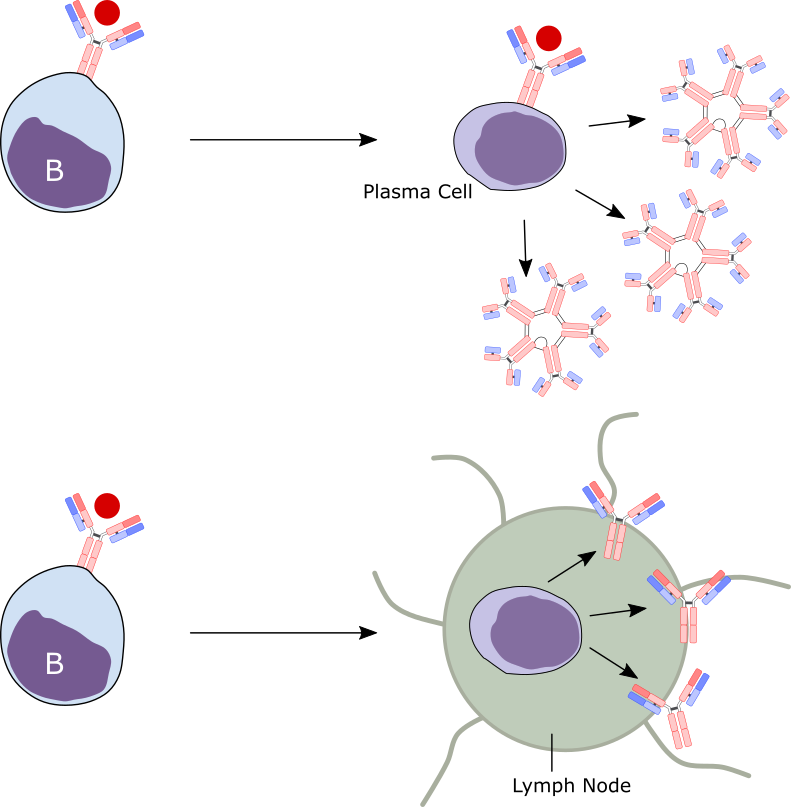B Lymphocytes 3

Following activation of B cells, a number of possibilities can occur: The B lymphocyte bound to antigen can differentiate into a short lived plasma cell that then secrete IgM and IgG antibodies specific for the antigen it has encountered. Short lived plasma cells are found primarily in the spleen and in lymph nodes. The B lymphocyte can instead enter the germinal centre of a lymph node in order to proliferate, develop an ability to bind to the antigen with greater affinity, and undergo immunoglobulin class switching. Immunoglobulin class switching refers to the process by which B cells become able to produce a different class of immunoglobulin in response to the same antigen. Once these events have occurred, the B lymphocyte can then exit the lymph node and travel to the bone marrow where they differentiate into a long-lived plasma cell or memory B cell. Memory B cells may remain in lymphoid organs or circulate between blood and lymphoid organs. It is important to note that a specific plasma cell can only produce antibody with specific affinity for a specific antigen. However, each plasma cell can produce a very large quantity of these specific antibodies.
